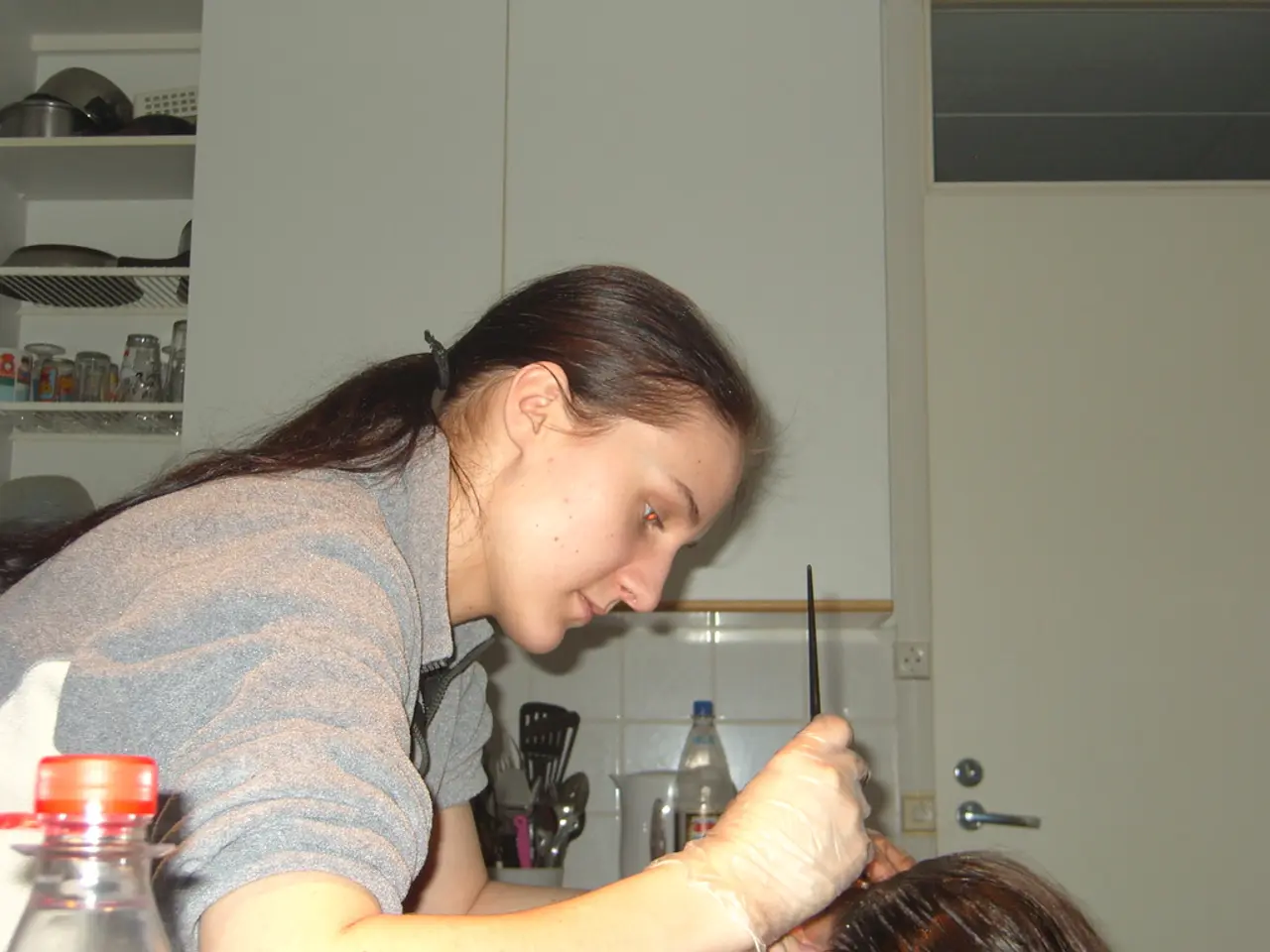Skin Irritations on the Head
In the realm of scalp health, understanding the causes of sores and scabs is crucial. While fungal, bacterial, or viral infections, as well as autoimmune diseases, are known culprits, there are other factors that can lead to these unwelcome symptoms.
Contact dermatitis, a reaction to substances such as shampoos, soaps, hair dyes, or hair products, can cause dry, itchy scabs or sores on the scalp. Dandruff or seborrheic dermatitis, a condition that causes flaky, itchy scalp which may develop into scabs, is another common non-infectious, non-autoimmune cause.
Psoriasis, an autoimmune condition, is also a major chronic scalp condition producing persistent, thick, silver or grey scabs on the scalp. It is often exacerbated by environmental factors like cold weather, alcohol, or smoking.
Physical trauma or scratching due to itching can damage skin and hair follicles, producing sores or scabs and potentially leading to hair loss. Environmental factors such as exposure to irritants, pollution, harsh weather, or allergens can also cause scalp inflammation and sores.
Prevention is key in maintaining a healthy scalp. Keeping your scalp clean is the easiest way to prevent fungal, bacterial, or viral infections. This includes shampooing immediately after exercising, cleaning any cuts on your scalp with an antimicrobial sanitizer, and not sharing items that touch your scalp.
If you suspect you've been exposed to the type of fungus that causes ringworm, washing your hair with an antifungal shampoo every day for two weeks can help prevent the fungus from settling in.
It's important to be aware of other symptoms that may indicate a secondary infection. If you're using a topical cream on scalp sores, ensure to wash the area before applying, part your hair, and let the cream dry before washing the area again.
For conditions like pemphigus, treatment requires careful monitoring by a doctor due to potential serious side effects. Treatment may involve medication either orally or via injection, and topical creams may also be used.
Treatment for psoriasis may involve a variety of methods, starting with topical treatments, and moving on to phototherapy or oral/injectable medication if necessary. Everyone responds to psoriasis treatments differently, so your doctor may have to try several methods before finding the one that's right for you.
By understanding these common causes and taking preventative measures, you can help maintain a healthy, infection-free scalp.
- Adopting a lifestyle that minimizes contact with potential irritants or allergens can help prevent scalp sores and scabs, as environmental factors often contribute to scalp inflammation.
- Lifestyle choices such as avoiding smoking and limiting alcohol consumption can reduce the severity of psoriasis, an autoimmune condition that causes persistent, thick scabs on the scalp.
- Maintaining good health-and-wellness practices, including a balanced diet and regular exercise, can boost your immune system and help your body fight off medical-conditions that affect the scalp, like fungal infections.
- Skin-care routines that prioritize products free from harsh chemicals can help prevent contact dermatitis, a common cause of scab formation on the scalp due to reactions to hair products.




